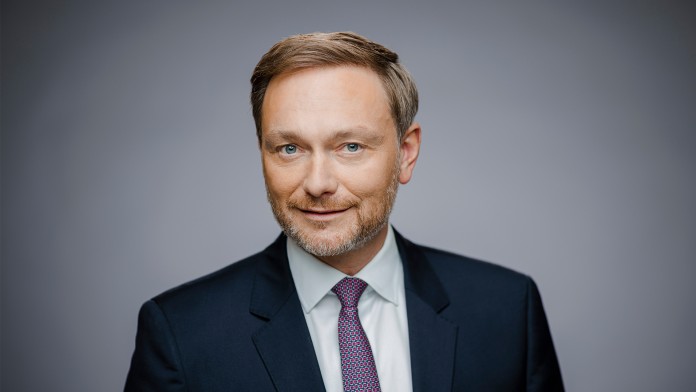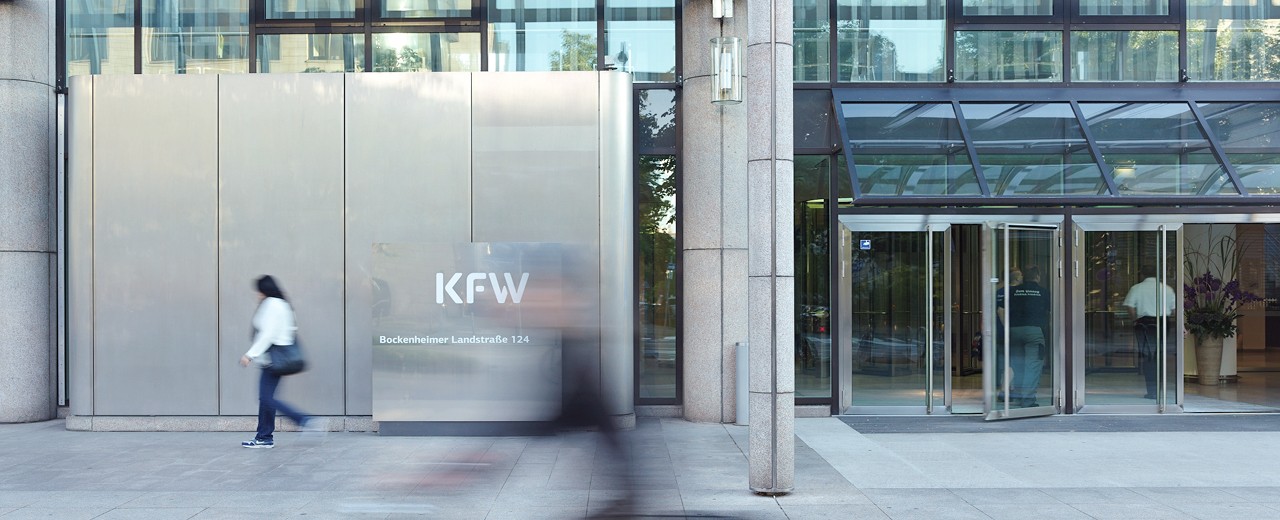Report of the Board of Supervisory Directors
Meetings of the Board of Supervisory Directors
The Board of Supervisory Directors and its committees constantly monitored the conduct of KfW’s business activities and the management of its assets. It has taken the necessary decisions on the provision of financing and the conduct of other business in accordance with the conditions set forth in the KfW Law and Bylaws. The Board of Supervisory Directors, the Presidial and Nomination Committee and the Remuneration Committee each met three times in 2022 for this purpose; the Audit Committee met twice and the Risk and Credit Committee eight times. Some of these meetings were held virtually in the form of conference calls and video conferences due to the pandemic.

At the meetings, the Board of Supervisory Directors acknowledged the information provided by the Executive Board on:
- KfW’s 2021 annual and consolidated financial statements;
- the business activities and current developments in each of KfW’s business sectors, including KfW IPEX-Bank, DEG and KfW Capital;
- the group’s net assets, its general financial, earnings and risk position, and on sensitive risk areas in particular;
- banking supervisory issues relating to KfW, current consultations with the banking supervisory authorities, compliance with regulatory capital requirements, audits completed and ongoing and the resulting measures as well as potential effects of future regulatory changes;
- the effects of the war between Russia and Ukraine;
- the KfWplus strategic agenda with the advancement of KfW towards being a digital transformation and promotional bank;
- the status of discussions with the Federal Government on alignment of the sector guidelines with the 1.5°C climate target and sectoral management of new business in line with the Paris climate targets until 2045;
- restructuring of SME loans (ERP Promotional Loan for SMEs and KfW promotional loans for large mid-sized companies) and the offering of the TUMO learning centre in Berlin and the interest in a nationwide rollout to promote digital skills in young people.
In addition, the Board of Supervisory Directors addressed the following key issues based on the reports submitted by the Executive Board on the individual business sectors:
- With regard to domestic promotional business activities, it also focused on the very high utilisation rate of Federal Funding for Efficient Buildings (Bundesförderung für effiziente Gebäude – “BEG”), with additional public funds sourced to continue the promotional offering for the time being. The Board of Supervisory Directors was also informed of the expiry of the coronavirus aid measures by the end of the first half of 2022, which had crucially served to support SMEs in the period of severely restrictive pandemic-induced measures. Other important topics included the measures to implement various aid programmes to mitigate the effects of the war in Europe, in particular, in procuring and securing the supply of energy, but also as aid to municipalities to accommodate people fleeing the war.
- Concerning the promotion of developing countries and emerging economies, the Board of Supervisory Directors considered the key issues of Financial Cooperation, including KfW’s Ukraine exposure with untied loans, and the launch of the PtX Platform at COP27 with development and growth funds to promote investments in green hydrogen projects.
- As for KfW IPEX-Bank, i.e. the Export and project finance business sector, the focus was on the support it provides to German and European investors and exporters, and the effects of the war in Europe.
- The Board of Supervisory Directors received regular reports on capital market development and KfW’s funding status. KfW funding on the capital market was expanded primarily via utilisation of the Economic Stabilisation Fund (“WSF”).
- The Board of Supervisory Directors also monitored KfW Group’s environmental and sustainability commitment.
The Board of Supervisory Directors was informed at the meetings as well as every quarter, in writing, of the group’s net assets, financial and earnings position, its risk situation, the development of its promotional business and Internal Auditing’s activity. The Executive Board also kept the Chair of the Board of Supervisory Directors and his deputy informed of key developments at the bank between meetings.
The Board of Supervisory Directors discussed key aspects of the business strategy and approved the planning for 2023. It acknowledged the multi-year business strategy, the risk strategy and the IT strategies for the group and the individual group companies.
Each member of the Board of Supervisory Directors is obliged to inform the Chair of the Board of Supervisory Directors or the relevant committee about potential conflicts of interest before a resolution is made. No material conflicts of interest arose during the reporting period. As a precautionary measure, there were five instances in which members of the Risk and Credit Committee abstained from voting or refrained from participating in resolutions.
Five members of the Board of Supervisory Directors attended fewer than half of the board meetings in the reporting year. One member attended fewer than half of the meetings of the Presidial and Nomination Committee; the same holds true for the Remuneration Committee and the Risk and Credit Committee. Two members attended fewer than half of the meetings of the Audit Committee.
Members of the Board of Supervisory Directors attended seven training events and five individual training sessions in 2022 to gain and maintain the expertise required in accordance with the German Banking Act.
Committees of the Board of Supervisory Directors
In exercising its responsibilities prescribed in the bylaws, the Presidial and Nomination Committee discussed Executive Board matters, in particular filling vacant positions, and resolved an updated temporary redistribution of responsibilities due to the changes resulting from the KfWplus transformation agenda and the domestic finance vacancy on the Executive Board. It also addressed an adjustment to the remuneration of the Executive Board and resolved further steps regarding the strategic guidelines for 2023 relating to the implementation of KfW’s basic business policy.
It was also informed about banking supervisory issues, KfW Stiftung, construction activities and legal disputes. It conducted an evaluation of the KfW bodies, assessed the professional qualifications and composition of its members and made respective recommendations to the Board of Supervisory Directors.
The Remuneration Committee discussed remuneration issues and the reports in accordance with the Remuneration Ordinance for Institutions (Institutsvergütungsverordnung – “IVV”). It was informed of the annual risk analysis to identify risk takers. As part of this risk analysis, KfW, both as an individual institution and at group level, has to identify staff members whose work could have a material impact on the risk profile of the institution/the group. It reviewed and confirmed the appropriateness of the remuneration systems. The group-wide remuneration strategy and the assessment base for variable employee remuneration were also discussed.
The Risk and Credit Committee reviewed the commitments, equity investments, and intra-entity loans that must be presented to it under the KfW Law and KfW Bylaws as well as the scope of borrowings required by KfW for its funding and the related swap transactions necessary for hedging and addressed the risk situation and the effectiveness of the risk management system. It also dealt with KfW’s exposure in various countries, regions and sectors, the development and assessment of political risks in relevant areas of activity, measures to further develop the risk culture, stress testing and market price risks in detail, the risk profile of financing in certain sectors and the remuneration system, with a particular focus on the IVV. The report on shadow banks also initiated an in-depth discussion on the topic.
There was also thorough discussion in particular on the impacts of the war between Russia and Ukraine and the ongoing pandemic on KfW’s risk situation.
The committee also addressed the assessment system for country risks and the possibilities of alternative propulsion technologies in aviation and cruise shipping. It discussed the further development of sectoral management in line with the Paris climate targets and information security risks. The regulatory capital requirements of KfW and the requirements under Basel IV were also discussed. And lastly, the committee debated the risk strategy, including capital planning for the next few financial years.
The Audit Committee addressed the accounting process, KfW’s net assets, financial and earnings position, the reports by Internal Auditing and Compliance and the annual financial statements of KfW Group 2021. It made corresponding recommendations to the Board of Supervisory Directors for the approval of the annual financial statements 2021 and the appointment of the auditor for 2023. Based on information supplied by the Executive Board, it evaluated the efficiency of the risk management system, the internal control system (ICS) and the internal audit system. In addition, it addressed auditor independence and audit quality, determined focal points of the 2022 financial statements audit and discussed the initial results of the 2022 financial statements audit (audit report part I). The committee approved the audit plan of the Internal Auditing department for 2023. It monitored banking supervisory issues and closely reviewed the banking supervisory assessments, along with the resulting measures and projects to remedy the findings. Lastly, the committee dealt with current developments in IT.
The committee chairpersons reported to the Board of Supervisory Directors regularly on the work of the committees.
Changes on the boards
In accordance with Article 7 (1) no. 1 of the KfW Law, in my capacity as Federal Minister of Finance, I assumed the Chair of the Board of Supervisory Directors for 2023 from my colleague Dr Robert Habeck, Federal Minister for Economic Affairs and Climate Action.
Gerald Heere, Harald Hübner, Ulrich Lange, Dr Marcus Optendrenk, Dr Bettina Orlopp and Dr Kai H. Warnecke joined the Board of Supervisory Directors with effect from 1 January 2023. Gerhard Hofmann resigned from the Board of Supervisory Directors with effect from 6 April 2022, and Daniel Quinten was appointed with effect from 7 April 2022. Dr Joachim Lang resigned from the Board of Supervisory Directors with effect from 31 December 2022, and Tanja Gönner was appointed with effect from 1 January 2023. Dr Danyal Bayaz, Ingeborg Esser, Albert Füracker, Dr Louis Hagen, Reinhold Hilbers and Alois Karl stepped down with effect from the end of 2022. The Board of Supervisory Directors would like to thank the members who stepped down for their work.
Dr André Berghegger, Volker Bouffier, Achim Post, Daniel Quinten and Joachim Rukwied stepped down and were reappointed according to schedule with effect from 31 December 2022.
Financial statements
Deloitte GmbH, which was appointed auditor for financial year 2022, has audited the annual financial statements, consolidated financial statements and the combined management report, all of which were prepared as of 31 December 2022 by the Executive Board, and issued an unqualified auditor’s report thereon. The annual financial statements of KfW were prepared in accordance with the provisions of the German Commercial Code (HGB), and the consolidated financial statements were prepared in accordance with International Financial Reporting Standards (IFRS) as applicable within the European Union.
At its meeting on 30 March 2023, the Board of Supervisory Directors approved the financial statements and the consolidated financial statements, both of which were prepared by the Executive Board, as stipulated in Article 9 (2) of the KfW Law, following a recommendation by the Audit Committee.
Frankfurt am Main, 30 March 2023
THE BOARD OF SUPERVISORY DIRECTORS
Chair
Legal notice:
The information contained in this online Annual Report 2022 is based on KfW’s Financial Report 2022, which you can download here. Should this online Annual Report 2022, despite the great care taken in preparation of its content, contain any contradictions or errors compared to the Financial Report, the KfW Financial Report 2022 takes priority.


Share page
To share the content of this page with your network, click on one of the icons below.
Note on data protection: When you share content, your personal data is transferred to the selected network.
Data protection
Alternatively, you can also copy the short link: https://www.kfw.de/s/enkBeMAN
Copy link Link copied